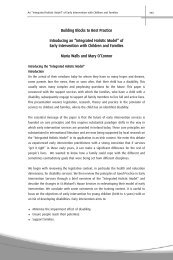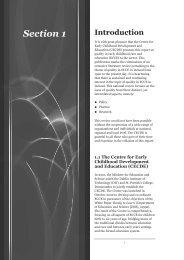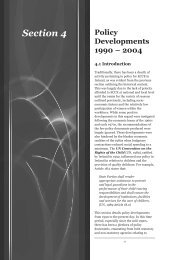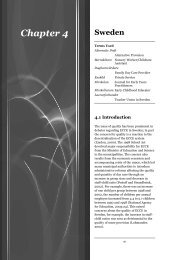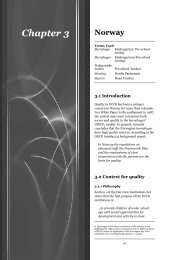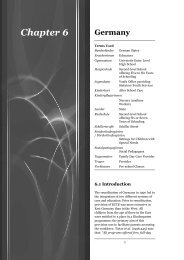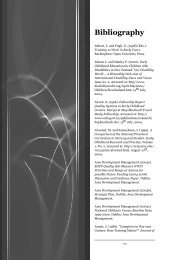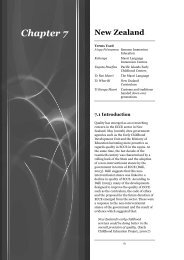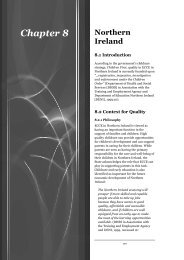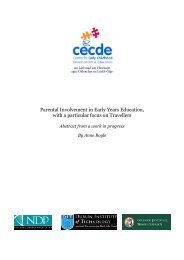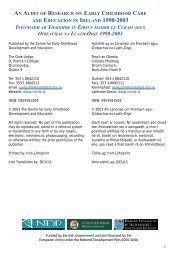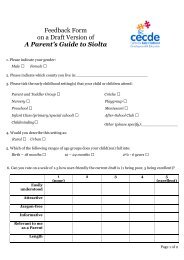Visions 08 sec 2.qxd - Centre for Early Childhood Development ...
Visions 08 sec 2.qxd - Centre for Early Childhood Development ...
Visions 08 sec 2.qxd - Centre for Early Childhood Development ...
- No tags were found...
Create successful ePaper yourself
Turn your PDF publications into a flip-book with our unique Google optimized e-Paper software.
Mirror, Mirror, On The Wall: Reflections Of The <strong>Early</strong> Years Professional 125Eraut (1994) identifies the training and education that typifies professions, such as aperiod of time <strong>for</strong> learning the 'trade' and enrolment on specialist training courses. Theincrease in <strong>Early</strong> <strong>Childhood</strong> Studies degree courses available at Higher EducationInstitutions reflects the wider opportunities now available <strong>for</strong> training and developmentat higher levels <strong>for</strong> the early years work<strong>for</strong>ce.Some key themes emerging from literature relating to professional identity wereterminology (related to what name the work<strong>for</strong>ce is known by); social policy and theeconomy and its impact on childcare and education (thus the work<strong>for</strong>ce too); training,qualifications, education and continuing professional development; and issues of gender,status, power and relationships.MethodologyDocumentary analysis offered potential as a research method to explore text in thecontext of the above themes and prevailing discourses at different points in time. Fealy(2004) undertook discourse analysis relating to nurses in Ireland. He revealed how thepublic discourse was influenced by culture and socio-political influences, from his analysisof nursing periodicals from the 1920s to the 1980s. Fealy (2004: 649) sought text relatingto "what nurses were doing and saying, including evidence of professional debate." Thismethod offered a line of enquiry in the search <strong>for</strong> equivalent discourse relating to earlyyears professionals. Language used in the context of the early years work<strong>for</strong>ce set in achronological context could illustrate changes in policy development."Discourse is a <strong>for</strong>m of power exercised by particular social groups; discourse decides'who' speaks and what they say, <strong>for</strong> no one has the right to say anything. …Hencepower and knowledge are joined. As social practices put knowledge to work, it is thediscourses that produce truth" (Swingewood, 2000: 197).Sources that provided historical documentary evidence of discourse pertinent to the earlyyears work<strong>for</strong>ce were selected, with the aim of asking the following key questions of thedocuments:1. What terms are used to identify members of the early years work<strong>for</strong>ce (who are notteachers)?2. What levels of training, qualifications, type of employment, knowledge,understanding and skills and personal qualities are explicit or implicit within thedocuments?3. What discourse relates to status, gender and power?DiscourseIt became apparent that the sources located <strong>for</strong> the earlier decades had scant mention ofthe early years work<strong>for</strong>ce, other than teachers. Such a paucity suggests an invisibility, and



